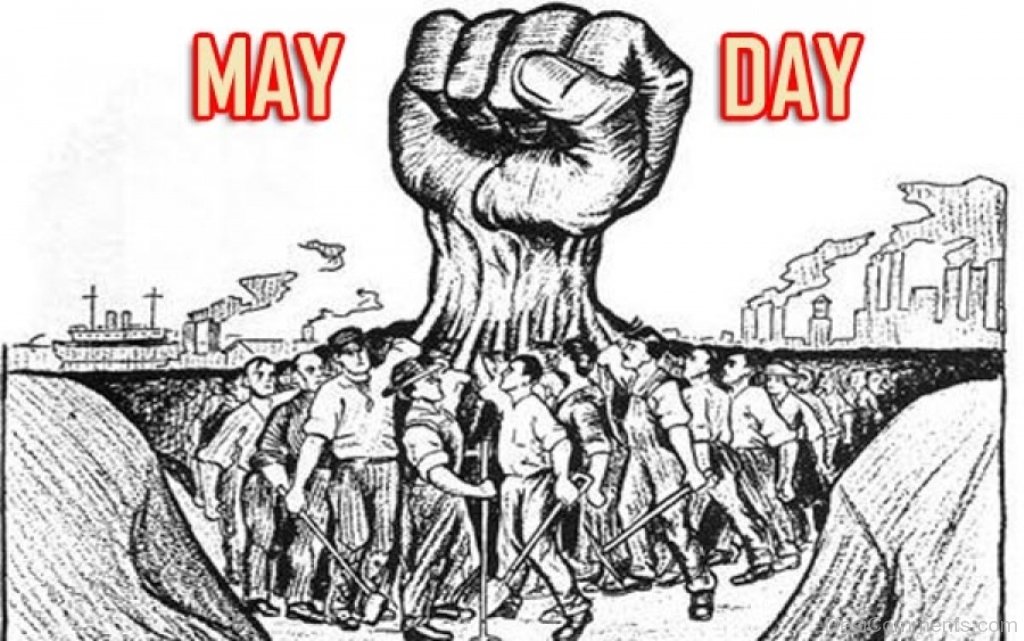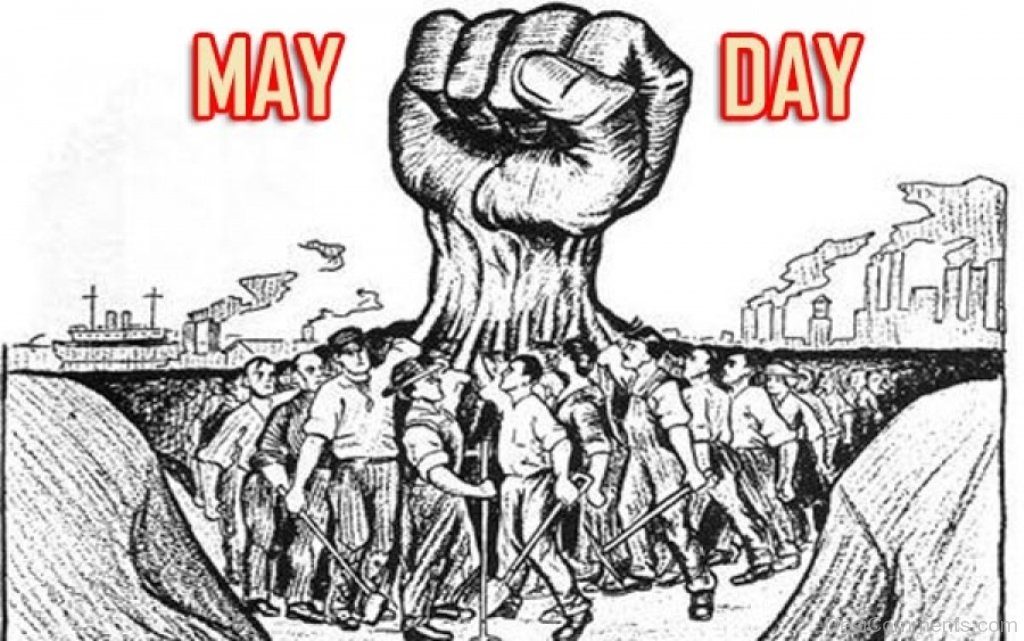Workers in India Feel Increasing Need for Unity in the Middle of Increasing Unemployment, Inflation and Privatization

This year May Day is being observed at a time of increasing need for wider unity by workers in the wake of adverse government policies leading to increasing burden of unemployment and inflation at the same time. Policies relating to demonetization, poorly conceived tax reform in the form of GST, privatization, excessively stringent and poorly planned lock-downs have led to massive job losses and reduced income across vast areas of economic activity, while policies which favor big business interests contribute at least partly to rise of price of several essential commodities.
At a time of adverse external factor including the Ukraine war policy distortions have made the situation for workers much more difficult than would have been the case of more protective policies had been followed. Workers employed in smaller units of unorganized sector and women workers have faced excessive burden and loss from policy distortions. Hence the need for increasing unity of workers in increasingly felt.
This was also reflected in the recent 2 day national level strike by workers on March 28 and 29. This strike was called by 10 central trade unions and other supporting organizations which according to organizers had the support and involvement of nearly 200 million ( 20 crore) workers. These workers included those from ports and mines, railways and transport, banking and insurance, refineries and telecom, public as well as private sector (including multinational companies). There was a significant presence of women in the strike, particularly those employed in various development schemes, often at very low wages.
The strike was in addition supported by the Samyukta Kisan Morcha, an umbrella organization of 40 farmers’ organizations which had spearheaded a massive and successful farmers’ protest movement last year. At the time of last year’s protest by farmers, workers and central trade unions had also extended their support and in fact there were some jointly planned actions at the start of the farmers’ agitation in November 2020.
A large number of accidents are being reported from industrial units, construction sites and mines and quarries. Reports of workers being made to work for longer hours in more difficult conditions have appeared. This is also a contributing factor for several industrial and construction site accidents.
The demands voiced by these workers include the protection of labor rights won by years of struggle as several of these rights are likely to get diluted or pushed back in the course of the government’s insistence on ‘consolidating’ them in 4 labor codes. For example there has been increasing uncertainty that important gains achieved by construction workers from two laws made specifically for them may be diluted even though efforts made in recent years for their better implementation have resulted in favorable decisions even from the Supreme Court.
There are increasing apprehensions of workers losing jobs and rights in the course of policies of relentlessly increasing privatization under different names and schemes. The policies of the government are widely seen to be creating more uncertain and difficult conditions for workers not just in unorganized sector units but even in those well-established industrial, banking and insurance enterprises which have been well-established and well-settled as public sector units.
The government says that less restrictive labor laws, or labor reforms, are needed to attract more investment including foreign investment. However the actual situation at the ground level is different. In reality the officialdom and related systems often operate against the interests of workers as big business uses its money power against workers. Often goons and musclemen are used to break unity of workers or to threaten them. If the system has generally functioned against the interests of workers most of whom toil for low wages under very harsh conditions, unions rightly question what will happen if labor laws are diluted in the name of reforms.
Another much discussed question relates to the for rural employment guarantee scheme (MGNREGA), a much-appreciated scheme started as a legal entitlement by the previous UPA government. Workers have been complaining that the wage rate is low and should be increased more significantly than the very low increases that are doled out more as a symbolic gesture from time to time. In addition there has been a persistent demand for increasing the overall budget of the scheme to meet the increasing pressure for more employment in villages. An urban employment guarantee scheme has also been demanded in recent years and in fact has already been initiated by some state governments in smaller ways, more particularly by the Rajasthan government very recently. However a bigger initiative by the central government regarding this is still awaited.
Much higher allocations for social sector including health, nutrition and education are widely regarded as long overdue, with a strong prioritization for meeting the needs of weaker sections. This should include significant increase in the allocations for important schemes which should also include provision for increasing the wages of workers employed in these schemes, most of whom are women and have toiled for long hours daily at less than the legal minimum wage rate. These workers have happily met some successes after prolonged struggles, for example in Haryana, and there have been some favorable court decisions as well. However some other sections particularly mid-day meal cooks still remain much neglected.
In the context of the pressing need for better social security, there is need for more comprehensive reform covering not just workers but farmers ( including sharecroppers, tenants and farm-workers) as well. Such comprehensive coverage is possible and details have been worked out by organizations like the pension parishad. A non-contributary pension which covers all elderly citizens with a pension of around Rs. 3000 ( leaving out only those who are receiving a higher pension already , or who are super rich) remains an exciting possibility in a country where most elderly people live without any social security cover at all.
Bharat Dogra is Honorary Convener, Campaign to Save Earth Now. His recent books include Man Over Machine and Planet in Peril.
















































